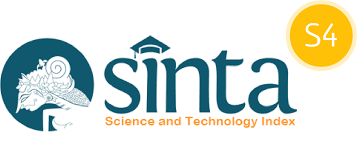Elisitasi Kebutuhan Untuk Meningkatkan Kepuasan Pengguna Pada Sistem E-Learning Universitas Muhammadiyah Malang
DOI:
https://doi.org/10.29408/jit.v4i2.3602Keywords:
Elisitasi Kebutuhan, Interview, Storyboard, Storytelling, User personaAbstract
In recent years the use of information systems has changed very dramatically. Currently, many information systems are developed for various types of users. These various kinds of users have different characteristics, which makes it very difficult for organizations developing information systems to know the needs of their users. For this reason, a good and in-depth need elicitation is needed to really know the user's needs. The purpose of this study is to explore the needs of users in the E-Learning system of the University of Muhammadiyah Malang to increase user satisfaction of the system. In this study, several elicitation methods were used, namely interviews, storytelling, user personas, and storyboards. The interview method is carried out to explore the problems experienced by users when using the system. Then the results of the interview will be processed into a narrative form of storytelling and then poured into a persona document. By using the above method, you can dig deeper to get a sharper solution to the problems experienced by users. The results of these four methods have proven to be effective in the need elicitation process because these four methods are interrelated and complement each other. This study resulted in a storyboard containing recommended solutions from the results of the excavation of needs carried out on users of the University of Muhammadiyah Malang E-Learning systemReferences
“Top Islamic Universities in the world | 2021 World University Ranking.†https://www.4icu.org/top-religious-universities/islamic/ (accessed Jun. 06, 2021).
W. A. Kusuma, A. Chathil, Y. Raditya, and N. Prakoso, “Elisitasi Kebutuhan Menggunakan User Persona,†pp. 85–93, 2020.
W. S , Prastuti Y.R, Christian Setianto, “Pemodelan Proses Elisitasi Kebutuhan Dengan Teknik Use Case (Studi Kasus : Pembangunan Aplikasi E-Marketplace Pertanian Pada Pemerintah Kabupaten Batang),†RISTEK J. Riset, Inov. dan Teknol., vol. 4, no. 2, pp. 73–83, 2020, [Online]. Available: http://ojs.batangkab.go.id/index.php/ristek/article/view/75.
P. Spoletini, A. Ferrari, M. Bano, D. Zowghi, and S. Gnesi, “Interview review: An empirical study on detecting ambiguities in requirements elicitation interviews,†in Lecture Notes in Computer Science (including subseries Lecture Notes in Artificial Intelligence and Lecture Notes in Bioinformatics), 2018, vol. 10753 LNCS, pp. 101–118, doi: 10.1007/978-3-319-77243-1_7.
S. Tiwari and S. S. Rathore, “A methodology for the selection of requirement elicitation techniques,†arXiv, 2017.
R. F. Ciriello, A. Richter, and G. Schwabe, “When prototyping meets storytelling: Practices and malpractices in innovating software firms,†Proc. - 2017 IEEE/ACM 39th Int. Conf. Softw. Eng. Softw. Eng. Pract. Track, ICSE-SEIP 2017, pp. 163–172, 2017, doi: 10.1109/ICSE-SEIP.2017.24.
N. Boulila, A. Hoffmann, and A. Herrmann, “Using Storytelling to record requirements: Elements for an effective requirements elicitation approach,†2011 4th Int. Work. Multimed. Enjoyable Requir. Eng. - Beyond Mere Descr. with More Fun Games, MERE’11 - Co-located with 19th IEEE Int. Requir. Eng. Conf., RE’11, no. August 2014, pp. 9–16, 2011, doi: 10.1109/MERE.2011.6043945.
P. Jakkaew and T. Hongthong, “Requirements elicitation to develop mobile application for elderly,†in 2nd Joint International Conference on Digital Arts, Media and Technology 2017: Digital Economy for Sustainable Growth, ICDAMT 2017, Apr. 2017, pp. 464–467, doi: 10.1109/ICDAMT.2017.7905013.
R. Mollá, V. Santamarina-campos, and F. Abad, “Drones and the Creative Industry,†Drones Creat. Ind., no. August, 2018, doi: 10.1007/978-3-319-95261-1.
B. Warin, C. Kolski, and C. Toffolon, “Living persona technique applied to HCI education,†IEEE Glob. Eng. Educ. Conf. EDUCON, vol. 2018-April, pp. 51–59, 2018, doi: 10.1109/EDUCON.2018.8363208.
Downloads
Published
How to Cite
Issue
Section
License
Semua tulisan pada jurnal ini menjadi tanggung jawab penuh penulis. Jurnal Infotek memberikan akses terbuka terhadap siapapun agar informasi dan temuan pada artikel tersebut bermanfaat bagi semua orang. Jurnal Infotek ini dapat diakses dan diunduh secara gratis, tanpa dipungut biaya sesuai dengan lisense creative commons yang digunakan.
Jurnal Infotek is licensed under a Creative Commons Attribution 4.0 International License.
Statistik Pengunjung




